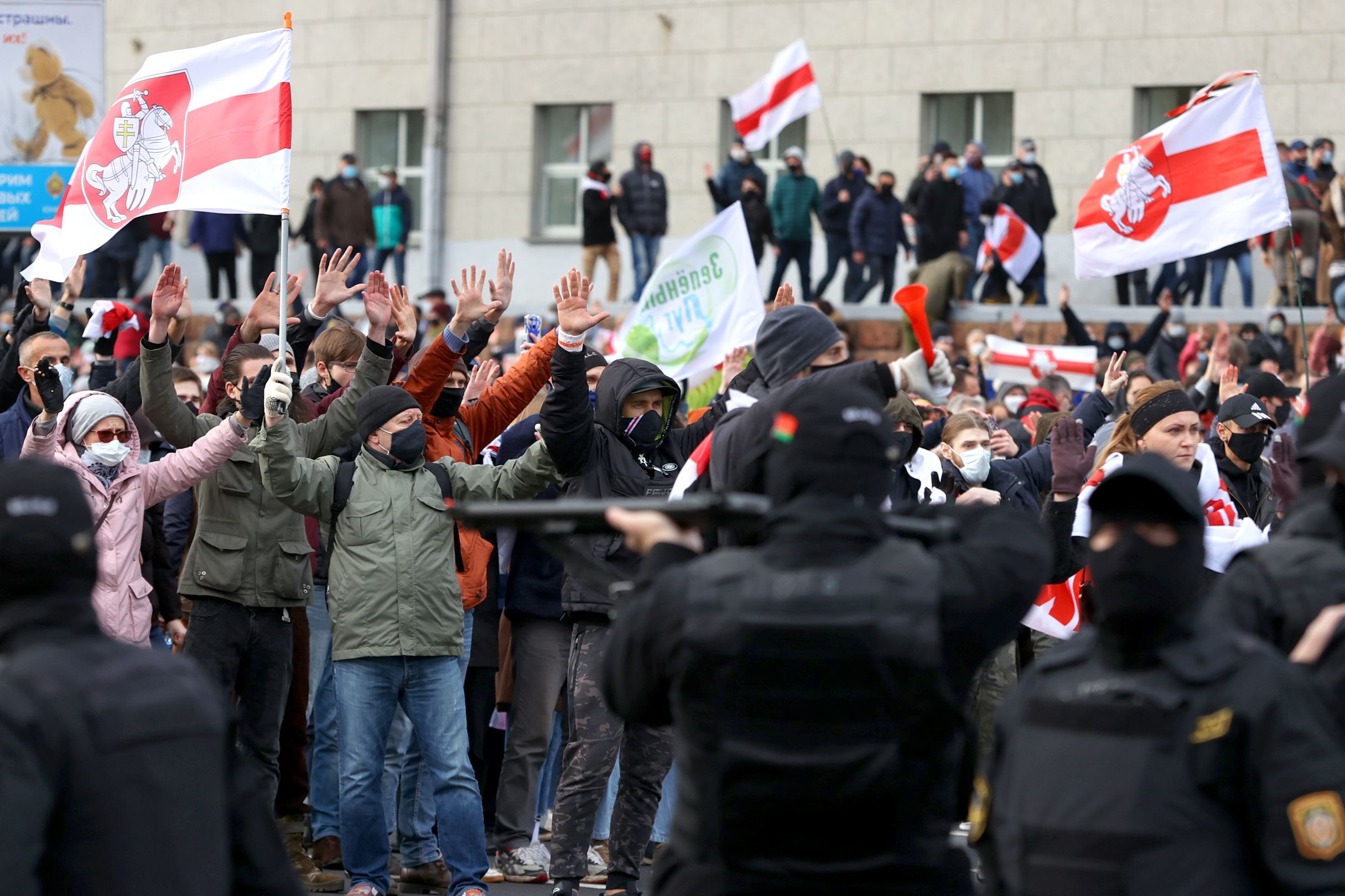Belarus Holds Presidential "Election"
Presidential elections were held in Belarus on 26 January, in which, according to the official results, Alexander Lukashenka, who has held the position continuously since 1994, won again. The elections were a sham and as before not conducted democratically. But unlike the previous ones in 2020, there is currently no potential for public protests due to the brutal persecution of the opposition and opponents of the regime.
(1).png) Evgenia Novozhenina / Reuters / Forum
Evgenia Novozhenina / Reuters / Forum
What were the official results of the vote?
According to the official results released on Monday by the Belarusian Central Election Commission, Lukashenka won more than 86% of the vote, but due to the way the election was organised and the lack of independent observers, it is impossible to accurately determine the actual results of the vote. Although Lukashenka was not formally the only candidate, the participation of rivals also linked to the regime, Alexander Khizhnyak, Oleg Gaidukevich, Hanna Kanapatskaya, and Sergei Syrankov, was directed to create the appearance of political pluralism and the possibility of a free choice. According to data provided by the authorities, turnout was expected to be over 85%. A survey conducted by Chatham House at the end of 2024 indicated that only 36% of Belarusians planned to take part in the elections, but in fact the final number may have been slightly higher due to pressure from the authorities on and propaganda geared towards showing a high turnout: for example, students, soldiers or employees of large industrial plants were de facto forced to vote in the early elections.
What does the continuation of the Lukashenka regime mean for Belarus?
The extension of Lukashenka’s rule means a further strengthening of the authoritarian regime in Belarus, continuation of the repression of the opposition, including the persecution of the Polish minority, the maintenance of censorship, and the persecution of journalists and independent media. The manner in which the “elections” were conducted, including the presence of military patrols on the streets supporting the milicja (police), proves that the authorities wanted to prevent at all costs a repeat of the months-long demonstrations of 2020. The freezing of the authoritarian system will also negatively affect the economic situation. Problems related to international sanctions and lack of access to Western markets are likely to grow and translate into even greater economic dependence of Belarus on Russia and China.
Is correction in Belarusian foreign policy possible?
The Belarusian regime will maintain its current foreign policy course, which, on the one hand, is tightening its links with Russia and China and their satellite states, and, on the other, continuing its confrontational, anti-Western rhetoric and hybrid actions towards NATO and the EU, including Poland in particular. One can expect, for example, the continuation of the artificial migration pressure created by the Belarusian authorities on the Polish-Belarusian border, which ties up some Polish military forces. Russia’s growing control over Belarus, including its military presence in the country, will pose an increasing threat to the security of Poland and the region. Lukashenka may try to engage as a mediator in potential Ukrainian-Russian peace talks to strengthen his international position. In order for Belarus to be considered the host of such negotiations, its authorities may pretend to lift their repression of the opposition and/or the Polish minority,. However, its dependence on Russia and the provision of Belarusian territory for an attack on Ukraine, which makes Belarus an aggressor state under international law, make it unlikely that Ukraine or its partners would consider such a proposal.
Why are widespread public protests unlikely?
The Lukashenka regime has managed in recent years to successfully pacify an active section of Belarusian society that could potentially protest against the rigging of the next presidential election. Leaders of the Belarusian opposition have either found themselves in prison or forced to flee the country. Estimates suggest that a total of up to half a million of the around 9 million Belarusians that oppose the regime—a large proportion of whom left just after the mass protests in 2020—are now in exile. The harsh repression of those who oppose the authorities, but also the presence of Russian troops in Belarus, means that society has largely adopted a passive stance.
How has the Belarusian opposition reacted to the elections?
The Belarusian opposition, both those still in the country and in exile abroad, ignored the “elections” as a façade. The regime deprived expatriates of the opportunity to vote by not organising voting abroad. Opposition demonstrations protesting the elections were held in many European cities. Even before the elections, Svetlana Tsikhanouskaya, leader of the Belarusian opposition and head of the so-called Transitional Cabinet, called the vote a “special operation” to keep Lukashenka illegally in power and declared that Belarusians would not recognise the results. Although the Belarusian opposition abroad will continue to fight for international recognition, its real impact on the situation in Belarus will remain negligible. The aim of Polish policy should be to further isolate the Lukashenka regime, especially in view of the increase in actions against the Polish minority. It is also important to continue supporting Belarusian political migrants, including the training of future civil servants.





(1).jpg)
.png)